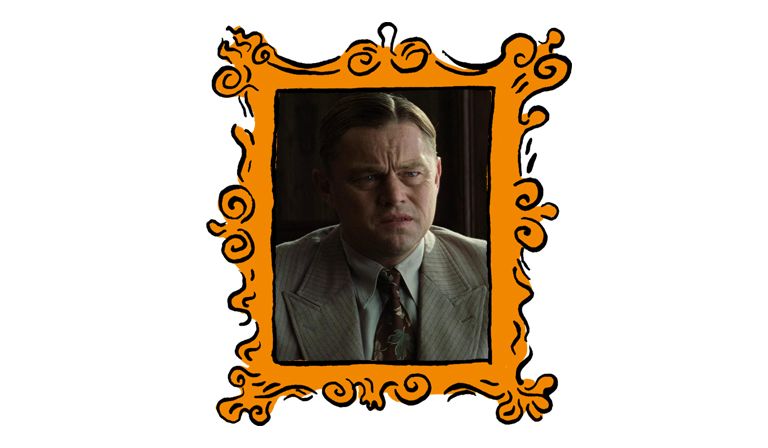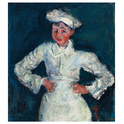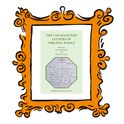As the 67th annual London Film Festival (LFF) closed shop last weekend, putting to a stop my frantic fortnight of zipping between the BFI Southbank and Picturehouse Central like a movie-crazed ping-pong ball, tiredness came second only to my genuine awe at what has been a banner year for cinema. From our resident grandpa and patron saint of Hollywood cinema, Martin Scorsese, and his sorrowful epic Killers of the Flower Moon to Sofia Coppola’s lyrical Priscilla, an examination of the life of Priscilla Presley, it’s been wall-to-wall greatness the likes of which I haven’t seen for some time.
Given its position at the backend of each year, the LFF also has the fortune of filtering the most hyped films from other international festivals through its programming nets—meaning that it’s generally a decent review of the year in movies, or, at least, of the upcoming theatrical calendar. It’s a place where you might begin to notice patterns; thematic, visual and otherwise. And one pattern I couldn’t help but notice this year was how many of the movies—be they buzzy debut films such as How to Have Sex, from British director Molly Manning Walker, or riotously weird feminist tracts such as Yorgos Lanthimos’s Poor Things—were concerned with subverting and re-examining traditional manhood, in tender, surprising and much more thoughtful ways than the old “toxic masculinity” discourse might lead you to expect.
The most traditional of these depictions of masculinity—at least on the surface—emanated from two respected male auteurs both making throwback crime films about contract killers: David Fincher’s The Killer and Richard Linklater’s Hit Man. Although they are sharply contrasting in tone, both films interrogate the stereotypical movie tropes about hitmen. Usually, these men are presented as silent, precise, ice-cold, elegant; in the vein of Jean-Pierre Melville’s 1960s work. But, instead, Linklater’s hitman (a phenomenally funny Glen Powell) is a sunny, charming, part-time undercover agent who wears cargo shorts and enjoys ornithology; he’s a dork who happens to be slippery enough to pretend to be able to do this job. That is, until he falls for a girl and utterly messes it up.
In Fincher’s more glacial and violent The Killer, Michael Fassbender would seem to be ideal casting for the usual dispassionate, sexy kind of hitman—but, instead, his character simply thinks he’s that guy. He self-consciously repeats mantras in voiceover that sound like cool-dude-existential-philosophy. He is only ever listening to The Smiths. Besides, he actually spends most of the film attempting to fix the catastrophic chain of events he has set in motion by screwing up one of his hits.
What both films share is a stylish nod to the classic crime genre combined with a wry self-awareness about how the hitman persona—that is, the persona of the forever-capable-and-unfeeling macho man—is always a matter of performance. They wonder what happens when that mask slips.
Jeff Nichols’s The Bike Riders—sadly now the victim of a pushed-back release date because of the Hollywood strikes—is almost entirely a swansong to the old-school idea of masculinity (and not without awareness of its appeal). In fact, you might say it revels in the iconography—leather jackets, motorcycle boots, the occasional bloody knuckles—as seen through the eyes of a biker gang wife, Kathy (a brash Jodie Comer performance destined to divide viewers). She is fully conscious of the problematic nature of these emotionally constipated man-children, but also of their dangerous, romantic appeal: Austin Butler, smoking and squinting in pure James Dean mode, justifies her worldview, to say the least.
Two films from queer directors offer something fresh. Andrew Haigh’s devastating All of Us Strangers focuses on a gay Londoner living alone (a wounded, utterly great Andrew Scott) and falling into a romance with his younger neighbour (Paul Mescal) while trying to reckon with the trauma of losing both his parents to an accident when he was a child. Haigh’s rendering of the protagonist’s imagined conversations with his father (Jamie Bell) are a beautiful salve for the pains of growing up in a homophobic era; both painfully honest and full of regret and kindness, showing the ability of these men to find forgiveness and understanding across this gap between them.
And Todd Haynes’s boisterously melodramatic May December posits an unexpected angle on sexual predation and victimhood, with a wonderful performance from Charles Melton as a married father who was groomed and sexually abused by a 30-something woman (Julianne Moore) while still in middle school. Flipping the switch on how we typically understand gendered ideas of victim and victimiser—and the psychological effect that has on anyone in Melton’s shoes—is the weighty and worthwhile crux of a movie that also trades in rompy humour.
Rather than simply taking aim at men or depicting the toxicity of machismo in black and white terms, the best films at the LFF this year, by men and women filmmakers both, delve into the grey area of how male identities are often painfully formed, used as a shield and sometimes as a weapon. That intelligence around gender dynamics will be playing out across our cinema screens over the next year or so, as these films hit wider release. I can only encourage you all to buy tickets and get seated for it.
Men and masculinity in the frame
From contract killers to grooming victims, this year’s London Film Festival re-examined manhood in often surprising ways
October 19, 2023

Leonardo DiCaprio in Killers of the Flower Moon











